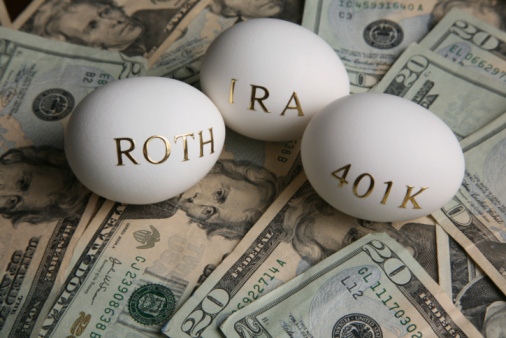Is a Roth Conversion Right for You?
There are different stages you go through in life: the young working individual just starting their careers, the vetted professional with a family, and the retired individual who needs to make sure their retirement savings will fund their remaining years and potentially provide an inheritance to their heirs. During each phase of life, there are financial decisions you make, such as purchasing a home, saving for your child’s education, or downsizing your home in retirement. One lesser-known decision you may make is whether to convert some of your pre-tax savings (e.g., Traditional IRA) into after-tax savings via a Roth conversion. Depending on your financial position in life, there are benefits and drawbacks to doing a Roth conversion.
When you transfer retirement funds from a Traditional IRA (Individual Retirement Account) or a pre-tax 401(k) into a Roth IRA or Roth 401(k) this is considered a Roth conversion. Your Traditional IRA or pre-tax 401(k) is a tax-deferred vehicle, meaning you do not pay income taxes on the money you contribute until you take distributions from the account. A Roth IRA is a tax-advantaged account, in that you pay income taxes on the money you contribute before it is deposited into the account, you pay no tax on dividend, interest, or capital gains income, and you can withdraw the money tax-free. When you convert funds from a Traditional IRA or pre-tax 401(k), you pay income taxes on the full amount converted in the year of the conversion.
There are a few rules to keep in mind when deciding if a Roth conversion is right for you:
* The deadline is December 31st of the year you want to convert.
*If you are not able to contribute to a Roth IRA directly due to your income being over the limit, you can still do a type of Roth conversion known as a backdoor Roth conversion. Currently, there is no limit on the number of conversions or the size of a Roth conversion you can make from a Traditional IRA.
*Converted funds must remain in your Roth IRA for at least five years. If you decide you want to take funds from your Roth IRA before the five years is up, you will be subject to a 10% early withdrawal penalty. Additionally, the five-year period starts at the beginning of the year in which you convert.
*Example: You want to convert funds in October of 2021, your five-year clock starts January 1st of 2021, and you would be able to withdraw funds after January 1st of 2026 without incurring the 10% penalty.
*If you are over 72 and must take a required minimum distribution (RMD) from your Traditional IRA, you can still do a Roth conversion, but you must take the RMD before doing the conversion.
As a young adult starting in your career, contributing to a Roth IRA is always a good idea, especially if you think your earning power will grow in the years ahead. Eventually, you might be phased out of contributing to the Roth IRA. If so, a Roth conversion may be a good option if you believe you will be in a higher tax bracket in the future and are comfortable paying the additional taxes in the current year.
When you are an established professional, diligently putting money away for retirement, it can be daunting to think you will need to rely on these savings in retirement. Having funds saved in a Roth IRA is an excellent tax diversification strategy. A huge benefit to a Roth IRA is there is currently no RMD as there is with a Traditional IRA. If your current tax situation allows, it may be best to do a Roth conversion while still staying within your current tax bracket. Typically, this is a good strategy to do each year, a little at a time. By doing so, you can adjust as tax law changes and increase, decrease, or cease your conversion, depending on the new tax changes.
A Roth conversion can be used as an estate planning technique for individuals who want to pass along an inheritance but remove the burden of paying taxes from their heirs. This is often best done for those folks in lower tax brackets than their heirs. Recognizing this can be a heavy burden to pay, one strategy you can employ is to set up a donor-advised fund (DAF) in conjunction with a Roth conversion. The income tax deduction on the DAF contribution tends to offset the increased tax liability from the Roth conversion because you receive an immediate tax deduction in the year you contribute to the DAF. The DAF allows the donor to make grants over time to the desired charity.
A Roth conversion can have benefits for those in certain financial planner positions, but these benefits must be weighed against the downside of increased taxes or potentially lower income taxes in the future. However, if you are comfortable paying taxes now, it can be of great benefit in the future, depending on your current age and retirement goals. We know laws constantly change and evolve. With a portion of your retirement funds in a Roth IRA, you can mitigate the potentially higher taxes down the road, and you will not be required to withdraw funds from the account at age 72, the age at which RMDs begin. Regardless of your stage in life, this can and should be a topic to consider.
If you have any additional questions about Roth conversions, do not hesitate to reach out to B&C Financial Advisors. We will work with you and your tax preparer to determine whether a conversion is best for you have given your circumstances.
The information presented in this article is for educational purposes only and is not meant to provide individual advice to the reader. There is no guarantee the information provided above relates to your personal situation. All financial situations are unique and should be advised as such.
Related Tag: CERTIFIED FINANCIAL PLANNERTM

